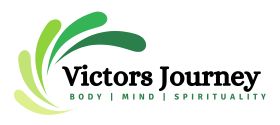“Your One-Stop Resource for Healthy Eating, Meal Plans, Nutrient-Rich Recipes, Weight Management, and More!”
Are we consuming a variety of nutrient-dense foods such as fruits, vegetables, whole grains, lean proteins, and healthy fats?
Are we mindful of portion sizes and overall caloric intake?
Do we pay attention to our body’s hunger and fullness cues when eating?
Are we incorporating meal planning and balanced diet strategies into our daily routine?
Are we staying adequately hydrated by drinking enough water throughout the day?
We are all looking for the perfect diet that will make us look and feel better. With so many diet fads out there, it can be hard to find the right one.
We all want a healthy nutrition and a diet that-
- keeps us fit,
- gives us glowing skin,
- keeps us in a positive mood, and
- provides all the nutrients our body needs.
Let’s find the best one that works for you.
- Introduction to Nutrition and Diet
Welcome to the Ultimate Nutrition and Diet Blog, your go-to source for nutrition, diet, and healthy living tips.
In this blog, we are going to discuss and –
– Understand the role of macronutrients (carbohydrates, proteins, and fats) and micronutrients (vitamins and minerals) in the body for informed food choices.
– Understand that a balanced diet involves consuming a variety of foods in the right proportions to promote overall health, optimal growth, and reduced risk of chronic diseases.
– Learn about the importance of nutrition in achieving a healthy weight, supporting physical and mental performance, and enhancing overall quality of life.
– Equip yourself with the basics of nutrition and diet to make informed choices for improved long-term health and wellness.
- Healthy Eating Habits and Nutrient-Rich Foods
When it comes to healthy eating habits and incorporating nutrient-rich foods into your daily diet, there are several key factors to consider, like –
- Healthy Eating Habits and Nutrient-Rich Foods.
- A balanced and diverse diet is essential, including plenty of fruits, vegetables, whole grains, lean proteins, and healthy fats.
- Fruits and vegetables offer essential vitamins, minerals, and fiber. Aim for a colorful variety to obtain a broad spectrum of nutrients.
- Whole grains like quinoa, brown rice, and oats provide complex carbohydrates and fiber, aiding in weight management and steady energy levels.
- Lean proteins such as poultry, fish, legumes, and tofu are crucial for muscle repair and growth.
- Healthy fats from avocados, nuts, seeds, and olive oil provide essential fatty acids and support heart health.
- Monitor portion sizes and caloric intake to avoid excessive consumption and weight gain.
- Staying hydrated is essential. Water aids digestion, nutrient absorption, and body temperature regulation.
- Develop healthy eating habits, including mindful eating, portion control, and meal planning.
- Mindful eating involves paying attention to hunger and fullness cues.
- Portion control helps manage calorie intake, while meal planning ensures well-balanced and nutrient-rich meals.
- In summary, healthy eating habits involve consuming a variety of nutrient-rich foods in appropriate portions to support overall health and well-being.
- Meal Planning and Balanced Diet Strategies
Meal planning and balanced diet strategies are essential components of maintaining a healthy lifestyle and achieving your wellness goals. By effectively planning your meals and following a balanced diet, you can ensure that your body receives the necessary nutrients for optimal functioning while managing your caloric intake. Here’s a detailed look at meal planning and balanced diet strategies, covering a wide range of keywords often used in internet searches:
1. Meal Planning:
Meal planning involves consciously organizing your meals and snacks to ensure a well-balanced, nutritious diet. It includes the selection of appropriate portion sizes and food choices to meet your nutritional needs throughout the day.
2. Benefits of Meal Planning:
Meal planning offers several advantages, including better control over your food choices, portion sizes, and overall calorie intake. It can also help save time and money, reduce food waste, and minimize the temptation to make unhealthy food choices when hunger strikes.
3. Steps to Effective Meal Planning:
a. Assessing Nutritional Needs: Consider your individual dietary requirements, including macronutrient and micronutrient needs, in line with your age, sex, weight, height, and activity level.
b. Setting Goals: Define your dietary goals, whether it’s weight management, muscle gain, or a specific health condition.
c. Creating a Menu: Plan your meals for the week, incorporating a variety of nutrient-rich foods from different food groups.
d. Preparing a Grocery List: Based on your menu, make a comprehensive grocery list that includes all the ingredients you need for your planned meals.
e. Preparing Meals in Advance: Consider batch cooking and food prepping to save time during the week, ensuring that healthy, ready-to-eat options are readily available.
4. Balanced Diet Strategies:
A balanced diet involves consuming the right proportions of macronutrients (carbohydrates, proteins, and fats) and micronutrients (vitamins and minerals) to support overall health and well-being.
5. Key Aspects of a Balanced Diet:
a. Macronutrients: Include carbohydrates, proteins, and fats in appropriate proportions to provide energy and support bodily functions.
b. Micronutrients: Ensure an adequate intake of essential vitamins and minerals through a variety of fruits, vegetables, whole grains, and lean proteins.
c. Hydration: Maintain proper hydration levels by consuming an adequate amount of water and other hydrating beverages.
d. Portion Control: Monitor portion sizes to manage caloric intake and prevent overeating.
6. Keywords for Internet Searches:
When searching for meal planning and balanced diet strategies on the internet, consider using keywords such as:
– Meal planning for beginners
– Healthy meal prep ideas
– Balanced diet meal plans
– Easy meal planning tips
– Nutrient-rich meal ideas
– Effective meal planning strategies
– Portion control techniques
– Benefits of meal planning and balanced diet
– How to create a weekly meal plan
– Meal planning for weight loss
By incorporating these keywords into your search, you can find a wealth of resources and tips to help you develop effective meal planning and balanced diet strategies that align with your nutritional needs and wellness goals.
- Weight Management and Weight Loss Tips
When it comes to weight management and weight loss, it’s important to focus on a combination of healthy eating, regular physical activity, and lifestyle changes. Here are some tips to help you with your weight management and weight loss journey:
1. Balanced Diet: Consuming a balanced diet that includes a variety of fruits, vegetables, lean proteins, whole grains, and healthy fats is essential for weight management. Portion control is also important to avoid overeating.
2. Regular Exercise: Engaging in regular physical activity such as walking, jogging, cycling, swimming, or strength training can help boost metabolism and burn calories. Aim for at least 150 minutes of moderate-intensity exercise per week.
3. Hydration: Drinking an adequate amount of water throughout the day can help control hunger and support overall health. Opt for water instead of sugary beverages.
4. Mindful Eating: Pay attention to your body’s hunger and fullness cues. Eating slowly and savoring each bite can help prevent overeating.
5. Meal Planning: Planning and preparing meals in advance can help you make healthier food choices and avoid the temptation of fast food or unhealthy snacks.
6. Get Enough Sleep: Inadequate sleep can disrupt hormonal balance and lead to weight gain. Aim for 7-8 hours of quality sleep each night.
7. Stress Management: Chronic stress can lead to emotional eating and weight gain. Practice stress-reducing activities such as yoga, meditation, or deep breathing exercises.
8. Seek Support: Building a support system can help keep you motivated and accountable. Consider joining a weight loss group or working with a healthcare professional.
9. Monitor Progress: Keep track of your food intake, physical activity, and progress towards your weight loss goals. This can help you identify patterns and make necessary adjustments.
10. Consult a Professional: If you have specific health concerns or need personalized guidance, consult a registered dietitian or healthcare provider for tailored advice.
By incorporating these tips into your lifestyle, you can work towards achieving and maintaining a healthy weight. Remember, consistency and patience are key to long-term success in weight management and weight loss.
- Scientific Insights into Diet and Health
Scientific insights into diet and health encompass a wide range of cutting-edge research and evidence-based findings that shed light on the impact of dietary choices on overall health and well-being. This field of study delves into the intricate mechanisms by which various nutrients, food components, and dietary patterns influence physiological processes, disease risk, and long-term health outcomes.
Key areas of scientific insight into diet and health include:
1. Nutritional Epidemiology: Nutritional epidemiology focuses on the study of dietary patterns and their association with the incidence of chronic diseases, such as cardiovascular conditions, diabetes, and certain cancers. Researchers in this field analyze large datasets to identify patterns and correlations between dietary habits and health outcomes in diverse populations. This area of study provides valuable insights into the long-term effects of different dietary practices on public health.
2. Macronutrient Metabolism: Understanding the metabolic pathways and physiological effects of macronutrients, namely carbohydrates, proteins, and fats, is critical for unraveling the intricate relationship between diet and health. Research in macronutrient metabolism elucidates how the body processes and utilizes different macronutrients, as well as the implications of imbalances or excesses in macronutrient intake for metabolic health, weight management, and disease risk.
3. Micronutrient Research: Micronutrients, including vitamins, minerals, and trace elements, play essential roles in numerous biochemical processes within the body. Scientific studies focused on micronutrients explore their impact on immune function, bone health, cognitive performance, and other physiological functions. This research also investigates the consequences of micronutrient deficiencies and excesses on individual health outcomes.
4. Gut Microbiota and Health: The human gut microbiota, composed of trillions of bacteria and other microorganisms, has emerged as a significant area of research in understanding how diet influences health. Scientific insights into the gut microbiota reveal its roles in metabolism, immune function, and the maintenance of gut barrier integrity. Moreover, research in this area investigates the influence of dietary components, such as fiber and probiotics, on shaping the composition and functionality of the gut microbiota.
5. Nutrigenomics and Personalized Nutrition: Nutrigenomics examines how individual genetic variations interact with dietary factors to modulate gene expression and metabolic pathways. This area of scientific inquiry aims to uncover personalized dietary recommendations tailored to an individual’s genetic makeup, considering factors such as nutrient metabolism, food intolerances, and susceptibility to diet-related diseases.
6. Dietary Interventions and Clinical Trials: Rigorous clinical trials and intervention studies assess the effects of specific dietary interventions, such as Mediterranean diet patterns, low-carbohydrate diets, or plant-based diets, on health outcomes. These studies provide valuable scientific insights into the potential benefits of different dietary approaches for managing conditions like obesity, diabetes, hypertension, and other metabolic disorders.
Overall, scientific insights into diet and health draw on multidisciplinary research encompassing nutrition, biochemistry, physiology, and epidemiology to deepen our understanding of the complex interplay between dietary choices and human health. This knowledge serves as a foundation for evidence-based dietary guidelines, public health initiatives, and personalized nutrition recommendations to promote optimal health and prevent chronic diseases.
- Latest Trends in Nutrition and Diet
The latest trends in nutrition and diet are constantly evolving as researchers and health professionals discover new information about how food and nutrients affect our bodies. Some of the current trends and topics in nutrition and diet include plant-based diets, intermittent fasting, ketogenic diet, gut health, personalized nutrition, superfoods, mindful eating, and sustainable eating.
Plant-based diets are gaining popularity due to their potential health benefits and focus on consuming more whole and plant-based foods while reducing the intake of animal products. This includes vegetarian and vegan diets, as well as flexitarian and pescatarian approaches.
Intermittent fasting has been a popular trend, with various approaches such as the 16/8 method and alternate-day fasting. It involves cycling between periods of eating and fasting and has been studied for its potential effects on weight management and metabolic health.
The ketogenic diet, characterized by high fat, low carbohydrate, and moderate protein intake, has gained attention for its potential benefits in weight loss and improving certain health conditions such as epilepsy and metabolic disorders.
Gut health is a hot topic in nutrition, with focus on the role of the gut microbiome in overall health and the potential effects of probiotics, prebiotics, and fermented foods on gut health and digestion.
Personalized nutrition has gained traction as research explores individualized dietary recommendations based on genetic, metabolic, and other personal factors to optimize health and prevent disease.
Superfoods, such as berries, turmeric, and kale, are nutrient-dense foods that are believed to have exceptional health benefits due to their high content of vitamins, minerals, and antioxidants.
Mindful eating promotes a more conscious and aware approach to eating, emphasizing being present in the moment and paying attention to hunger and fullness cues, as well as the sensory experience of food.
Sustainable eating addresses the environmental impact of food production and consumption, promoting practices that are both healthy for individuals and the planet, such as reducing food waste, choosing locally sourced foods, and supporting sustainable farming practices.
These are just some of the current trends and topics in nutrition and diet that reflect the diverse and evolving landscape of dietary practices and their impact on health and well-being.
- Expert Advice on Nutrition and Meal Plans
When it comes to expert advice on nutrition and meal plans, there are essential keywords and concepts to consider. This comprehensive guide incorporates various elements often used in internet searches to provide detailed information on nutrition and meal planning.
1. Macronutrients:
Understanding macronutrients, which include carbohydrates, proteins, and fats, is crucial for creating a well-balanced meal plan. By incorporating the right proportion of macronutrients into your diet, you can support overall health and well-being. Carbohydrates provide energy, proteins play a vital role in muscle repair and growth, and healthy fats are essential for various bodily functions.
2. Micronutrients:
Vitamins and minerals are micronutrients that are vital for overall health. Including a variety of fruits, vegetables, whole grains, and lean proteins in your meal plan ensures that you receive a broad spectrum of essential vitamins and minerals, supporting optimal bodily functions and reducing the risk of chronic diseases.
3. Weight Management:
Nutrition and meal plans play a significant role in weight management. By focusing on nutrient-dense foods, portion control, and mindful eating, individuals can effectively manage their calorie intake while obtaining the necessary nutrients for their bodies.
4. Expert Guidance:
Seeking expert guidance from registered dietitians, nutritionists, or healthcare professionals can provide personalized advice on nutrition and meal planning tailored to individual needs. Expert advice may include meal plans, dietary recommendations, and strategies for achieving specific health and wellness goals.
5. Meal Prepping:
Meal prepping is a valuable strategy for planning and preparing meals in advance. It involves creating a weekly meal plan, shopping for ingredients, and preparing meals ahead of time to ensure convenient access to nutritious and balanced meals throughout the week.
6. Balanced Diet:
A balanced diet is key to maintaining overall health. It involves consuming a variety of foods from different food groups, ensuring that all essential nutrients are included in appropriate proportions. This promotes optimal health and supports the body’s nutritional needs.
7. Nutrient-Rich Recipes:
Incorporating nutrient-rich recipes into meal plans is essential for ensuring a diverse and wholesome diet. Nutrient-rich recipes focus on using whole, unprocessed ingredients to create meals that are packed with essential nutrients, vitamins, and minerals.
8. Dietary Restrictions and Preferences:
Consideration of dietary restrictions, allergies, and personal food preferences is crucial when creating meal plans. Expert advice on nutrition and meal planning should address how to accommodate specific dietary needs while ensuring adequate nutrition.
By taking these keywords and concepts into account, you can develop a comprehensive understanding of expert advice on nutrition and meal plans, empowering you to make informed choices for your health and well-being.
8. Achieving Your Health and Wellness Goals through Informed Nutrition Choices
Achieving Your Health and Wellness Goals through Informed Nutrition Choices is a vital aspect of maintaining a healthy lifestyle. Making informed nutrition choices involves considering various factors such as individual dietary requirements, physical activity levels, and personal health goals. By understanding the nutritional content of different foods and how they can impact your overall health, you can make better choices to support your well-being.
When it comes to achieving health and wellness goals, nutrition plays a key role. It is important to focus on consuming a balanced diet that includes a variety of nutrients such as carbohydrates, proteins, healthy fats, vitamins, and minerals. Incorporating whole foods such as fruits, vegetables, whole grains, lean proteins, and healthy fats is fundamental to supporting overall health.
Informed nutrition choices also involve understanding portion sizes and meal planning. By being mindful of portion control and planning meals that are nutritionally balanced, individuals can better manage their caloric intake and ensure they are meeting their nutrient needs. Additionally, staying hydrated by consuming an adequate amount of water is essential for overall health and well-being.
It’s also important to consider the impact of lifestyle choices on nutrition. Factors such as stress, sleep, and physical activity levels can influence dietary needs. Finding a balance between nutrition and lifestyle factors is crucial for achieving health and wellness goals.
In today’s digital age, there are numerous resources available to support informed nutrition choices. Utilizing credible websites, apps, and online communities can provide individuals with access to reliable information and tools for meal planning, nutritional analysis, and tracking food intake. Seeking guidance from registered dietitians or nutritionists can also be beneficial in developing personalized nutrition plans tailored to individual needs.
In summary, achieving health and wellness goals through informed nutrition choices requires a holistic approach that considers individual dietary needs, lifestyle factors, and access to reliable information and resources. By making conscious and informed decisions about dietary intake, individuals can take proactive steps toward maintaining a healthy and balanced lifestyle.
9. Sustainable Lifestyle Changes for Long-Term Health
When it comes to making sustainable lifestyle changes for long-term health, several key factors must be considered. These include maintaining a balanced and nutritious diet, engaging in regular physical activity, ensuring adequate sleep, managing stress, and avoiding harmful habits such as smoking and excessive alcohol consumption.
Eating a balanced diet rich in fruits, vegetables, whole grains, and lean proteins is essential for long-term health. It’s important to limit the intake of processed foods, sugary snacks, and high-fat meals. Additionally, staying well-hydrated by drinking plenty of water is crucial for overall health.
Regular physical activity is also a cornerstone of a healthy lifestyle. Incorporating both aerobic exercises, such as walking, swimming, or cycling, and strength training activities helps to maintain a healthy weight, strengthen the cardiovascular system, and improve muscle tone.
Adequate sleep is often overlooked but plays a vital role in overall health. Establishing a consistent sleep schedule and creating a relaxing bedtime routine can significantly impact one’s physical and mental well-being.
Stress management is another critical aspect of promoting long-term health. Finding healthy outlets for stress, such as mindfulness meditation, yoga, or spending time in nature, can help reduce the negative impacts of chronic stress on the body.
Lastly, eliminating harmful habits like smoking and excessive alcohol consumption is paramount for long-term health. These behaviors can significantly increase the risk of various chronic illnesses and should be avoided entirely.
By focusing on these key areas—nutrition, physical activity, sleep, stress management, and avoiding harmful habits—one can make sustainable lifestyle changes that support long-term health and well-being.
10. Personalized Nutrition and Diet Solutions
Personalized nutrition and diet solutions are customized approaches to healthy eating that take into account an individual’s specific nutritional needs and dietary preferences. These solutions are tailored to each person’s unique physiology, lifestyle, and health goals, and they are designed to optimize overall health and well-being. By incorporating personalized nutrition and diet solutions into one’s lifestyle, individuals can better manage weight, improve energy levels, support athletic performance, and reduce the risk of chronic diseases.
Key elements of personalized nutrition and diet solutions include personalized meal plans, nutritional counseling, genetic testing, food sensitivity testing, and ongoing support from qualified professionals such as registered dietitians, nutritionists, and health coaches. These solutions often leverage cutting-edge technologies such as AI-powered nutrition apps, wearable devices, and telehealth platforms to deliver personalized recommendations and track progress effectively.
When searching the internet for personalized nutrition and diet solutions, keywords to consider include “personalized nutrition programs,” “customized meal plans,” “nutrigenomics,” “nutrition counseling,” “dietitian services,” “individualized dietary approach,” “genetic testing for nutrition,” “food sensitivity testing,” “tailored nutrition plans,” “personalized diet recommendations,” “smart nutrition apps,” and “virtual nutrition coaching.”
Incorporating personalized nutrition and diet solutions into one’s lifestyle empowers individuals to make informed dietary choices that align with their unique needs and goals, ultimately leading to improved health outcomes and a greater sense of well-being.
11. Comprehensive Guide to Nutrition and Wellness
The Comprehensive Guide to Nutrition and Wellness is a comprehensive resource that covers all aspects of nutrition and well-being. This guide provides detailed information on various elements that contribute to overall health, such as dietary recommendations, essential nutrients, meal planning, and the impact of physical activity. It also delves into the importance of hydration, proper sleep, stress management, and mental well-being.
The guide discusses different dietary approaches, including balanced diets, plant-based diets, and specific dietary strategies for various health conditions. It also explores the significance of vitamins, minerals, and other nutritional components, outlining their roles in the body and food sources where they can be found. Furthermore, the guide emphasizes the value of mindful eating and making informed food choices.
Additionally, the Comprehensive Guide to Nutrition and Wellness provides insights into the relationship between nutrition and specific health goals, such as weight management, boosting metabolism, improving digestion, and enhancing overall energy levels. It also addresses common nutritional myths and misconceptions, offering evidence-based information to help individuals make educated decisions about their health.
Moreover, the guide highlights the significance of physical exercise and its contribution to overall wellness, discussing different types of workouts, exercise routines, and their impact on both physical and mental health. It also underscores the role of rest and recovery in achieving and maintaining wellness.
Furthermore, the Comprehensive Guide to Nutrition and Wellness delves into the psychological and emotional aspects of well-being, providing guidance on stress reduction, mindfulness practices, and strategies for improving mental resilience. It emphasizes the holistic nature of well-being, acknowledging the interplay between physical, emotional, and mental health.
In summary, the Comprehensive Guide to Nutrition and Wellness offers a holistic and in-depth exploration of nutrition and overall well-being, encompassing a wide range of topics and serving as a valuable resource for anyone seeking to enhance their health and vitality.












